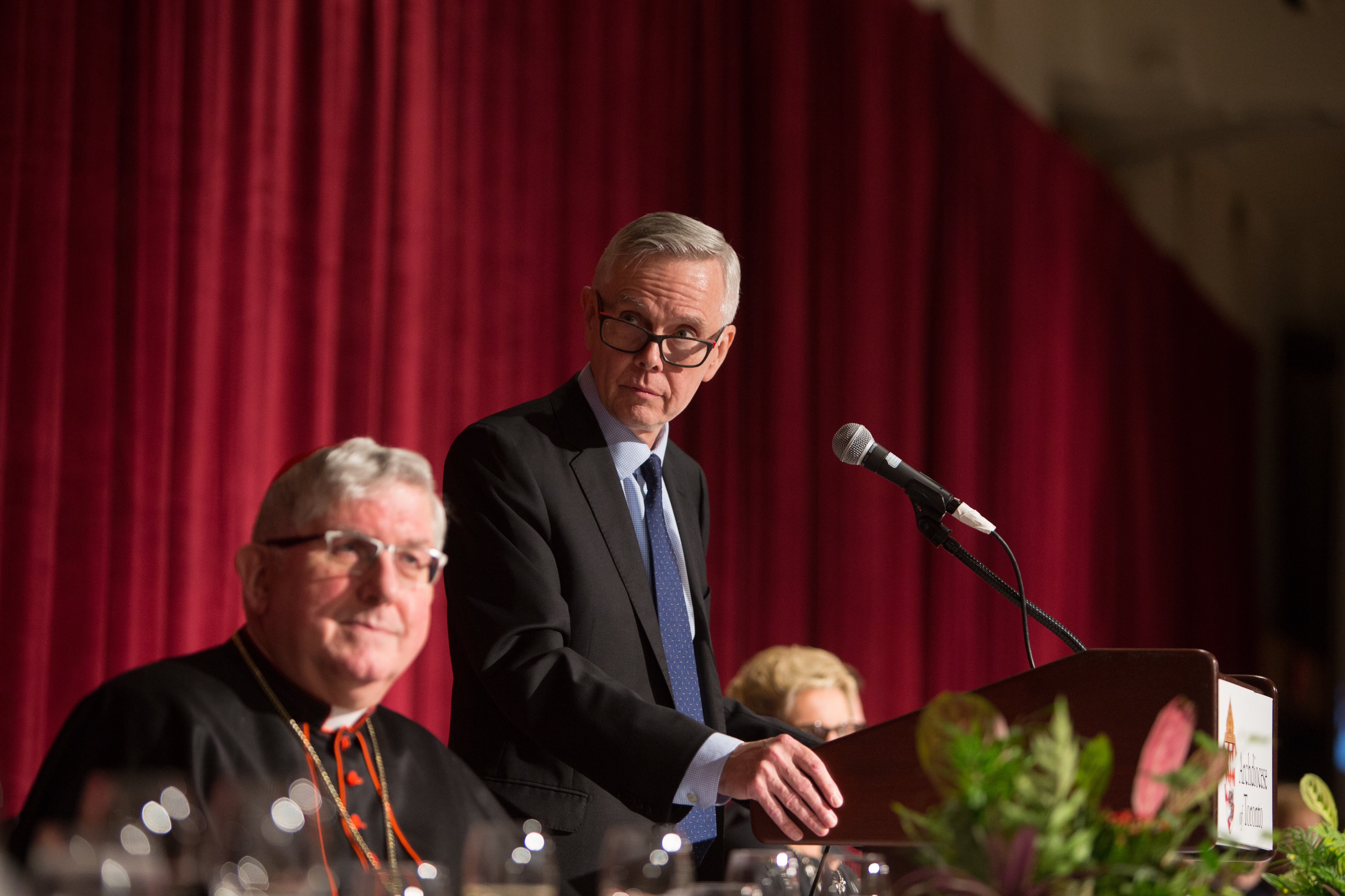Canada News
Following U.K. on Huawei an ‘easy out’ for Canada, says ex-China envoy

David Mulroney said that would be a bad decision that would amount to Ottawa caving to more than a year of Beijing bullying. (File photo: David_Mulroney/Twitter)
OTTAWA — Industry Minister Navdeep Bains says the government is studying Britain’s decision to grant Chinese telecom company Huawei partial access to its next-generation 5G network, but has yet to make its own decision.
The update, or lack thereof, comes after Britain said Tuesday it would attempt to limit “high-risk” vendors’ access to the new upgraded network — coded language for Huawei.
The Liberal government has said the safety and security of Canadians is its top concern, a talking point Bains reiterated without offering any timeline on when the government will decide.
“They (Britain) are an ally; we’re engaged with them,” Bains said in Ottawa. “So, of course, we’re looking at what decisions they’ve made and how they plan to implement those decisions.”
A former Canadian envoy to China warned Tuesday that Britain’s decision gives the Trudeau government an “easy out” to make the same choice.
David Mulroney said that would be a bad decision that would amount to Ottawa caving to more than a year of Beijing bullying.
“This is just the latest, albeit one of the most consequential, in a series of bad decisions and false compromises that western governments have made in respect to China,” said Mulroney, who served as the Canadian ambassador to China from 2009 to 2012.
“The result is that Chinese technology, and with its potential Chinese influence, is embedded ever more deeply in the governance structures of the West.”
The political pressure stems from China’s ongoing imprisonment of two Canadians, who were detained on spying charges more than a year ago after Canada arrested Huawei executive Meng Wanzhou on a U.S. extradition warrant.
Like Britain, Canada has been under pressure by the United States to ban the Chinese company as a threat to U.S. national security — a charge the company denies.
The Trump administration has said that China’s 2017 national intelligence law means communist leaders could force Huawei to conduct cyberespionage on behalf of the country’s communist government.
Mulroney said what the British decision “does is provide an easy out for those in government who are seeking one” because they can now “pretend that we can ‘manage’ the China risk” at the 5G level.
“What is surreal about this is that we have experienced more than a year of Chinese bullying and coercion, all because of legal action taken by Canada against a Huawei executive,” Mulroney said.
“Have we learned nothing?”
Ottawa is carrying out a comprehensive review of 5G that involves Public Safety Canada, the Canadian Security Intelligence Service, the Communications Security Establishment, Global Affairs, and Innovation, Science and Economic Development.
“Of course there is a political dimension to it,” Bains said.
“We’re not going to make a decision based on one particular jurisdiction; we’re going to look at what’s in Canadians’ interest.
”
Canada faces the exact same set of calculations that Britain did around economic impact, geopolitics and security, said Wesley Wark, a security expert and visiting professor at the University of Ottawa who has followed the issue closely.
“My hope is that in Canada, as in the U.K., the government will listen to its security professionals and adopt a made-in-Canada version of a risk-mitigation strategy, avoiding the imposition of a ban on Huawei.”
The government’s decision will in part depend on what happens next with the U.S. pressure campaign against allies, he said.
“Canadian officials will watch this intently, and watch for a renewed pressure campaign targeting Canada directly, before coming out with our own decision.”
Cong Peiwu, China’s ambassador to Canada, has dismissed the notion that Huawei could compromise users’ security as a “groundless accusation.”
Late last year, he said he hoped Canada would provide “a fair, just and non-discriminatory business environment for Chinese companies, including Huawei.”
This report by The Canadian Press was first published Jan. 28, 2020.
— with files from Jim Bronskill in Ottawa





















